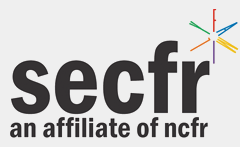B.E. Safe
Proposal Focus
Education
Presentation Type
Presentation
Abstract
Methodology:
The Behavioral and Environmental Safety Program (B.E. Safe) for Early Childhood Professionals is being developed in response to Federal Safety regulations for childcare procedures and addresses social and emotional safety concerns. The curriculum includes Family Life Education content areas focusing on diversity, inclusion, social and emotional health, bullying prevention, supporting children with special needs, building relationships with parents, and understanding children’s behavior.
Discussion of existing research:
Research states that high quality childcare and education benefits all children (DHSS, 2015). Best practices indicate that Early Childhood Professionals need high quality training to be equipped to understand child development, strategies for working with families, and having the resources for supports when including children with disabilities in early childcare programs (DHSS, 2015). Not only should Early Childhood Professionals be equipped with the tools and resources to understand children’s behavior, educators need to demonstrate competency in state regulations, environmental safety for children, and playground safety (Sheridan, Edwards, Marvin & Knoche, 2009). B.E. Safe allows Early Childhood Professionals to engage in a research-based training that will help to ensure safety within their center.
Connection to Theory:
Behavior theories of child development incorporate environmental influences on behavior (Shute & Slee, 2015). A child’s early learning environment and the adults influence of children affects emotional, social, and physical development. B.E. Safe relates to Vygotsky’s Sociocultural Theory (1978) suggesting that children learn actively through hands on experiences. The Sociocultural Theory suggest that parents, caregivers, and a child’s environment from a young age is largely responsible for higher order functions (Shute & Slee, 2015). Proficiency in Adverse Childhood Experiences (ACEs) will allow participants to grasp how traumatic events can affect a child’s developmental process. Educating early childcare professionals on ACEs will allow for adults to be aware of what to look for, and how to keep children protected from adverse experiences (Sacks, Murphey & Moore, 2014).
How will the study add to knowledge/innovative practice?
Family Scientists will gain knowledge on best practices for providing Family Life Education to Early Childhood Professionals. Specifically, participants will gain knowledge on promoting inclusion, understanding behavior issues, developmental delays, and how to keep children safe from potential environmental hazards.
Keywords
safety, early childhood education, behavior
Location
Tiger I
Start Date
9-3-2018 3:30 PM
End Date
9-3-2018 4:15 PM
B.E. Safe
Tiger I
Methodology:
The Behavioral and Environmental Safety Program (B.E. Safe) for Early Childhood Professionals is being developed in response to Federal Safety regulations for childcare procedures and addresses social and emotional safety concerns. The curriculum includes Family Life Education content areas focusing on diversity, inclusion, social and emotional health, bullying prevention, supporting children with special needs, building relationships with parents, and understanding children’s behavior.
Discussion of existing research:
Research states that high quality childcare and education benefits all children (DHSS, 2015). Best practices indicate that Early Childhood Professionals need high quality training to be equipped to understand child development, strategies for working with families, and having the resources for supports when including children with disabilities in early childcare programs (DHSS, 2015). Not only should Early Childhood Professionals be equipped with the tools and resources to understand children’s behavior, educators need to demonstrate competency in state regulations, environmental safety for children, and playground safety (Sheridan, Edwards, Marvin & Knoche, 2009). B.E. Safe allows Early Childhood Professionals to engage in a research-based training that will help to ensure safety within their center.
Connection to Theory:
Behavior theories of child development incorporate environmental influences on behavior (Shute & Slee, 2015). A child’s early learning environment and the adults influence of children affects emotional, social, and physical development. B.E. Safe relates to Vygotsky’s Sociocultural Theory (1978) suggesting that children learn actively through hands on experiences. The Sociocultural Theory suggest that parents, caregivers, and a child’s environment from a young age is largely responsible for higher order functions (Shute & Slee, 2015). Proficiency in Adverse Childhood Experiences (ACEs) will allow participants to grasp how traumatic events can affect a child’s developmental process. Educating early childcare professionals on ACEs will allow for adults to be aware of what to look for, and how to keep children protected from adverse experiences (Sacks, Murphey & Moore, 2014).
How will the study add to knowledge/innovative practice?
Family Scientists will gain knowledge on best practices for providing Family Life Education to Early Childhood Professionals. Specifically, participants will gain knowledge on promoting inclusion, understanding behavior issues, developmental delays, and how to keep children safe from potential environmental hazards.
![Southeastern Council on Family Relations Conference [2018-2020]](/assets/md5images/a0d3661d5139dc9b769a57be6f085156.png)

